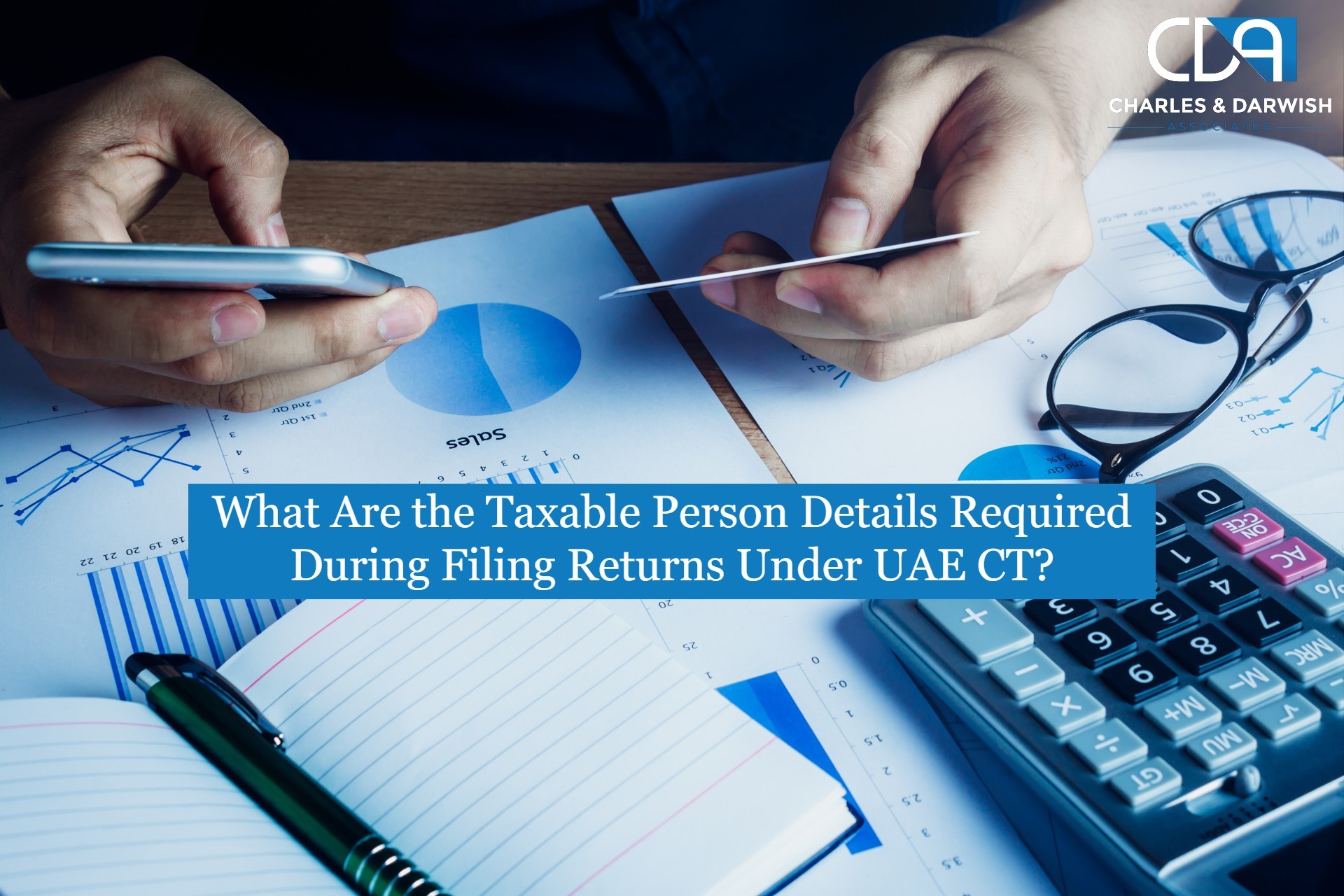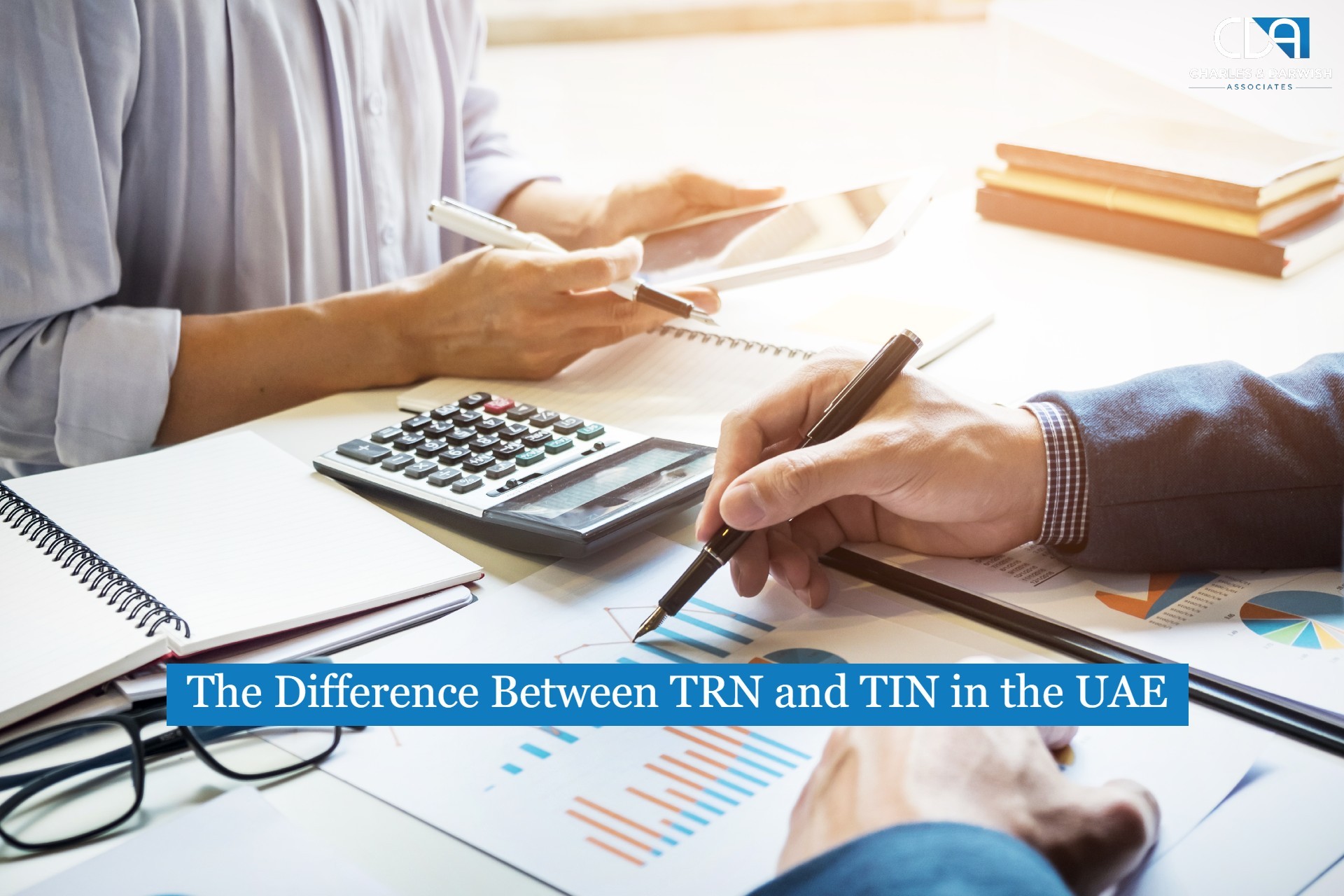What Are the Taxable Person Details Required During Filing Returns Under UAE CT?
The introduction of corporate tax has resulted in many changes in the tax environment in UAE. When it comes to submission of the CT return, the Federal Tax Authority (FTA) requires a detailed submission of information about the "taxable person" - a natural person (individual) or a legal person (company, partnership, etc.). This information is important for accurate tax liability and ensures that the tax system works effectively.
The "Taxable Person" section in the UAE corporate tax return is designed to capture the basic identity details of the entities responsible for taxes, and it is much higher than just one name and address. The necessary details will depend on the status and nature of the taxable person.
The in-detail insights of the taxable person details could be gathered from this blog
Basic Identification And Contact Information
Any tax return requires a clear identity in the core. Some of the prepopulated information includes the following:
- Legal Name (English and Arabic): The official registered name of the business or person according to their business license or identity documents. Giving both English and Arabic names ensures continuity and compliance with local administrative requirements.
- Tax Registration Number (TRN): There is a unique identifier that is specially assigned to the corporate purpose of the FTA.
- Address description: Country, address line, city, country code and P.O. Box (if applicable). This ensures that the FTA can reach out to the taxpayer.
- Contact information: It covers the landline number, the mobile number and a valid email, which allows the FTA to intensify and effectively communicate about tax return or related inquiry.
- Tax period: Apparently, the financial year or a period of specific 12 months for which accounts are prepared and tax returns are submitted. This is usually the calendar year or a selected 12-main period, but can be adjusted to specific conditions (e.g. liquidation, tax groups or financial reporting) with FTA approval.
You can also read: 30 September 2025: The UAE Corporate Tax Return Filing Deadline is Approaching!
Business Specifics
Beyond the basic identity, FTA requires information that highlights the nature of the business and its operational structure. This helps the taxable person to classify and use the correct corporate tax rules.
- Primary occupational activity: Clear description of the most important commercial functions performed by the taxable person. It must be accurate as per the description included in the license. Any deviations here can cause delays or problems during treatment.
- Type of taxable person: This is an important classification that determines which parts of the tax return are relevant. Categories can be included:
- Natural Person: A person conducting commercial activities in a commercial license, especially if their annual income is more than 1 million AED.
- Judicial person: It includes companies, partnerships, and other legal institutions that are managed and controlled under the laws of the United Arab Emirates.
- Free Zone Person: This includes the companies registered in the freezones. There are specific considerations in this category, especially about the "qualifying free zone person" status, which allows for 0% CT interest on "qualifying revenue."
- Tax group: If a parent company and its subsidiaries meet specific criteria and choose to form a tax group, the original company submits a consolidated return for the entire group.
- Unincorporated Partnerships: It can be regarded as a separate taxable person or as a transparent unit where partners are taxed individually. Election submission affects the requirements.
- Accounting method: It indicates whether the annual accounts have been prepared on an accrued basis (standard for most companies) or cash-based (potentially allowed for small companies with revenues under a certain threshold, currently 3 million, or under extraordinary conditions with FTA approval).
- Tax Residency Status: Is the entity a resident person or a non-resident person? Juridical persons incorporated or effectively managed and controlled in the UAE are generally considered Resident Persons.
Specific Considerations for Different Taxable Person Types
The required information is dynamically tailored based on "Type of Taxable Person":
For Natural Persons:
- Confirmation of turnover from the UAE's business.
- Economic detail "Basis for preparation" (cash or accrual).
- Tax residential status for UAE CT purposes (resident or non-resident).
- Documents such as Passport Copy, Emirates ID Copy, Trade License (if applied), and details of bank accounts.
- Number of business activities conducted by the taxable person
- Details regarding if the taxable person is a partner in any unincorporated partnerships
For Juridical Persons:
- Confirmation regarding whether the entity is part of a multinational corporate group (MNE Group), which is relevant for transferring prices.
- Confirmation of whether taxable business activities are conducted in the UAE.
- Grounds for non-resident person tax filings, such as the existence of a Permanent Establishment.
- Documents such as trade licenses, the Memorandum of Association (MOA) or equivalent, and authorized signers.
- Details regarding the revenue generated during the tax period
- Details regarding if the taxable person is a partner in any unincorporated partnerships
For Free Zone Persons:
- Confirmation of free zone registration.
- Declaration that an election has been made not to be subject to CT at the rate applicable to Qualifying Free Zone Persons (QFZP).
- Confirmation that the entity satisfies the requirements to be considered a Qualifying Free Zone Person (e.g., maintaining adequate substance, deriving 'Qualifying Income,' and complying with transfer pricing).
For Tax Groups:
- Details of the original company that will submit consolidated returns.
- Confirm that all group members have the same financial year and use the same accounting standards.
Common Details For All Entities
There are some common details that all types of entities must provide, which would include the number of business activities conducted and the list of such activities, whether the taxable person is part of any MNE or unincorporated partnership, the taxable revenue generated in the tax period, the details regarding the TRN and the basis of accounting, whether it is cash basis or accrual basis.
CDA: The Tax Expert At Your Doorstep
According to the UAE CT law, it may be complicated to navigate the nuances of tax residency, business activities, accounting methods, and specific requirements for different entity types under the UAE corporate tax regime. Don't let the company's compliance take a chance. If you are looking for expert guidance to determine the details of your taxable person, ensure accurate reporting, or require extensive support with the UAE company's tax return, CDA is here to help. CDA provides unique expertise in the company’s tax compliance. Make sure your business is completely obedient and avoids potential damage.
Contact CDA today for a consultation on your UAE Corporate Tax requirements.

Mitesh Maithia
Tax Manager
Mitesh is a Tax Professional with expertise in direct, indirect, and international taxation, including transfer pricing, since 2018. Passionate about making complex tax matters simple, he shares insights to help businesses stay compliant and forward-looking.













